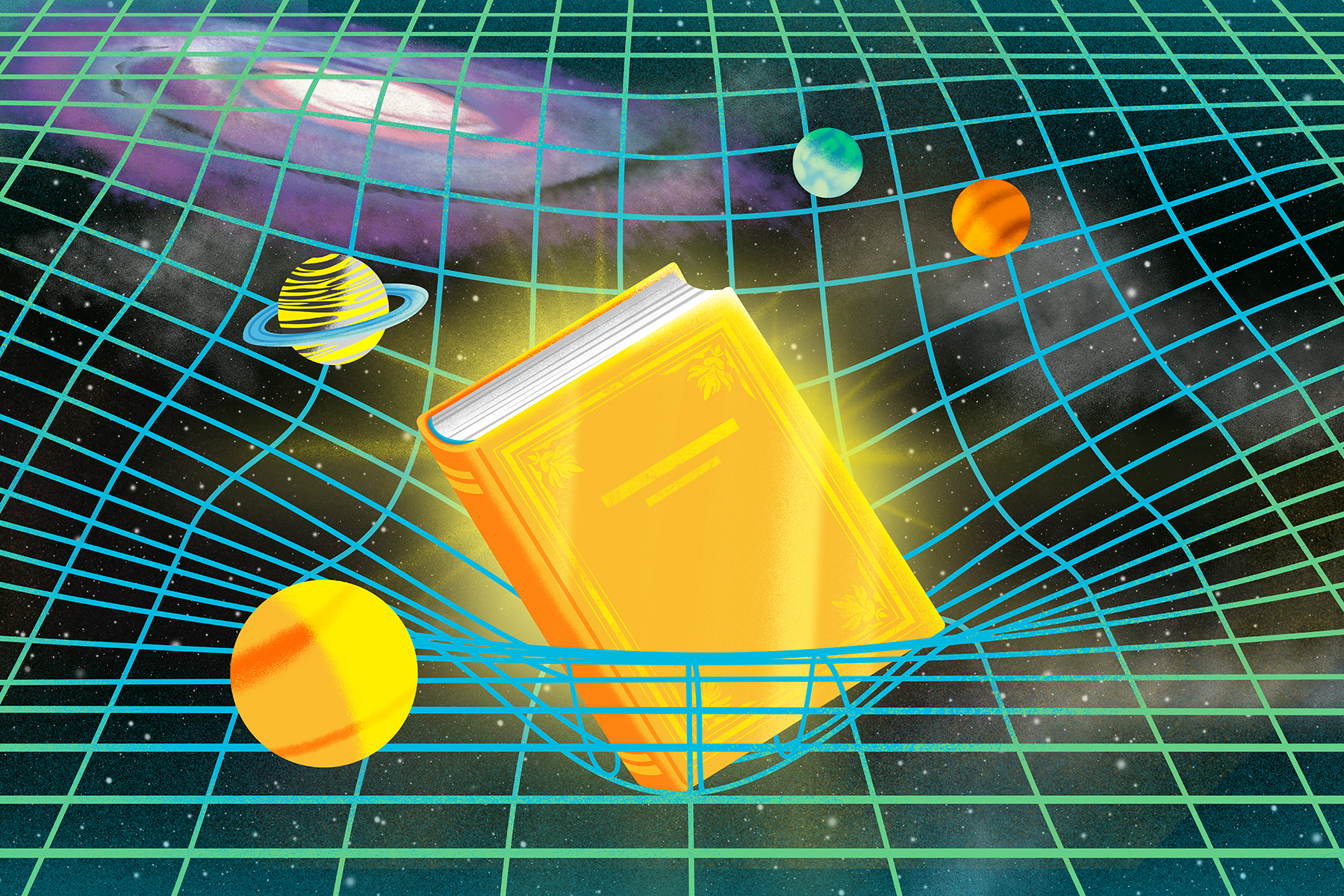
- Home |
- Search Results |
- Next Book Energy: the secret science behind your next read
On my shelf at home is a book that both my partner and I have been meaning to read for over two years. It seems like a fascinating read: it got excellent reviews, and has a socio-historical bent that interests us both. It moved flat with us, and has survived not one but three bookshelf purges. By all measures, it is Something I’d Like to Read.
So when some friends were over recently and, spotting its spine, asked if we’d read it yet, we found ourselves grasping for an answer. Had I known that they were asking because it sat, similarly unread, on their bookshelf at home, I might have gotten to the answer faster, but I couldn’t quite put my finger on why I hadn’t read it yet.
Until it occurred to me: for somebody to pick their next read, a book needs to literally be the most alluring book in the world; if it wasn’t, you would reach for something else. And this book, this otherwise wonderful-seeming book, wasn’t that – and, I thought, might never be.
“It just…” I tried to elaborate. “It doesn’t have Next Book Energy.”
'If that book was a falling apple, I felt a little bit like Newton'
My friend’s eyes widened: “Oh my god!” she cackled, admitting they hadn’t read it either. “Next Book Energy! It doesn’t!”
At the risk of overstating it: if that book, which neither of the four of us had read, was a falling apple, I felt a little bit like Newton. My hypothesis about one’s next read needing to have unparalleled allure – a certain sparkle, an ineffable something – seemed simple, but it had never occurred to me so vividly. I spent the following weeks thinking about Next Book Energy, discussing it with friends and colleagues to figure out exactly what it is.
The Law of Next Book Energy
The law of Next Book Energy posits that any book, in order to be selected as one’s next read, must possess an allure so powerful that no other book holds higher reading priority in the decisive split second in which the spine is cracked and reading begins.
Some might ask: is this not just fate? Well, not quite – that would be to ignore the sheer multitude of factors that make up our reasons for wanting to read a given book, and which therefore constitute Next Book Energy: the book was suggested to you, or even written by, a friend; you read a great review (or reviews) of the book; it’s consistently included in ‘best’ book lists; it won an award, or awards; a celebrity or famous artist recommended it; it’s technically the ‘next’ book on your to-be-read pile; you just bought it at a bookshop and want to read something on the bus home. Which isn’t even to touch on the multifarious reasons we read books we technically don’t even want to, such as guilt (a gift from a well-meaning uncle who might follow up), or for school or work research.
'A multitude of factors make up our reasons for wanting to read a given book, and constitute Next Book Energy'
I would hypothesise here that unless there’s an urgent reason to read a book (a school exam), Next Book Energy most commonly materialises at the intersection of two or more of these factors, and usually as a result of what I’ll call the Rule of Three: you see the book recommended in one and then another context (a good book review, a mention on social media), but it’s the third encounter – perhaps a more personal one, such as somebody whose taste matches your own recommending it to you – that imbues it finally, categorically, with Next Book Energy.
The exception that proves the rule
It feels important, too, to acknowledge the one instance in which the law of Next Book Energy is negated – that is, when the desired book is out of reach for one reason or another (out of stock at a bookstore, lent to a friend, etc). But it is the exception that proves the scientific rule: in typical cases, I would argue that the book retains its energy, and that starting a different book does not and cannot satisfy in the same way. In many cases, the desire is strengthened by the book’s inaccessibility; in rare ones, it is weakened and, in extreme cases, lost.
Energy is transferable
This is because Next Book Energy is, like all energy, transferable. Sometimes, a book sits on your bedside table for months before it has Next Book Energy – for some reason or other, it just doesn’t grip you. Sometimes, a book surges out of nowhere – maybe a classic you’d meant to read years ago appears before you in a secondhand bookshop, with a handsome cover and a negligible price tag (this is COLOSSAL Next Book Energy!!!).
'No book is essentially devoid of Next Book Energy'
This is the beauty of Next Book Energy: it comes to a book, and it goes; often, it returns; or, sometimes, it never comes, as was the case with the apple that bonked me so profoundly on the head at the beginning of this essay. But I keep that book on the shelf – as indeed do my friends from that night – because of a late-stage breakthrough: the book may not yet have risen to the very summit of my to-be-read pile, but that it may yet remains forever a possibility.
Next Book Energy is unpredictable, and no book is essentially devoid of Next Book Energy. At any time, any book might have Next Book Energy; you’ll just have to wait and see what you pick up next.
What did you think of this article? Email editor@penguinrandomhouse.co.uk and let us know.
Image: Ana Yael at Studio PI for Penguin